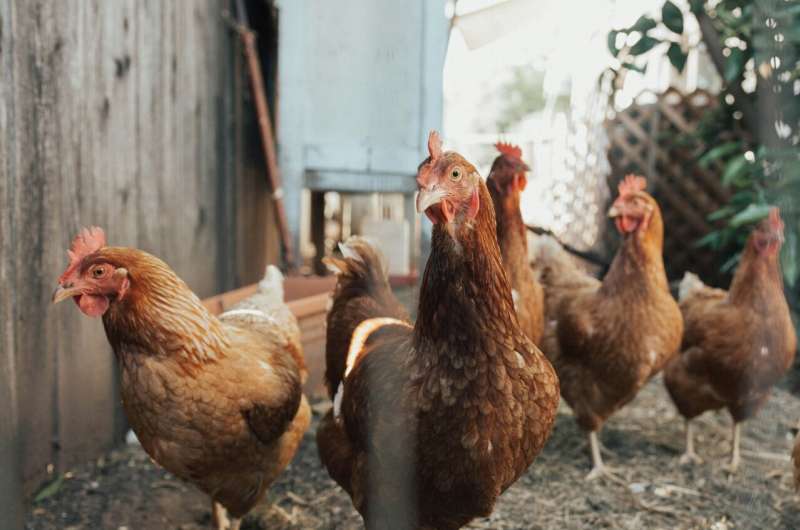A recent study has revealed that antimicrobial peptides can effectively combat Salmonella infections in chickens, offering a potential enhancement to food safety and public health. Published on November 3, 2025, in the journal Microbiology Spectrum, this research highlights the role of these peptides as promising alternatives to traditional antibiotics.
The study’s corresponding author, Gireesh Rajashekara, BVSc, Ph.D., who serves as Professor and Associate Dean for Research and Advanced Studies in the Department of Pathobiology at the University of Illinois Urbana-Champaign, emphasized the significance of these findings. “Antimicrobial peptides have the potential to be alternatives to antibiotics and thereby could mitigate antibiotic resistance,” he stated.
Salmonella is a leading cause of foodborne illnesses in the United States, with chickens and their products, such as eggs and meat, identified as primary sources of infection in humans. The research team aimed to identify effective alternatives to antibiotics for controlling Salmonella in poultry. Antimicrobial peptides, which are short chains of amino acids, can eliminate harmful bacteria without fostering antibiotic resistance.
In their experiments, researchers identified a specific set of antimicrobial peptides that demonstrated the ability to kill various types of Salmonella in laboratory conditions. Furthermore, these peptides were also effective in reducing Salmonella populations in chickens. The mechanism of action appears to involve disrupting the membranes of the bacteria.
The study noted that the antimicrobial peptides maintained their effectiveness even when exposed to heat and protease treatments, essential qualities for potential applications within the poultry industry. Rajashekara remarked, “We identified two antimicrobial peptides that kill many different types of Salmonella and also reduce Salmonella load in chickens.”
This research may pave the way for the development and practical application of antimicrobial peptides in poultry farming, thereby contributing to improved food safety and public health. Rajashekara outlined future plans, stating, “Our future work is to test these peptides in chickens on a large scale, optimize their delivery in water and/or feed, understand better how they kill Salmonella, and explore more peptides like these for their anti-Salmonella activity.”
As the poultry industry seeks innovative solutions to combat foodborne pathogens, the findings from this study represent a significant step forward. With the potential to enhance food safety measures, antimicrobial peptides could play a vital role in protecting public health against Salmonella infections.







